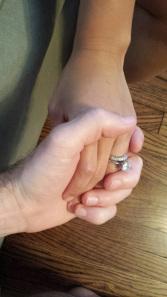
Affairs & Infidelity are rarely as simple as someone was good while the other was bad. This is too simplistic an explanation but we all love it because it’s easier to digest than the difficult truths underneath.We love the simplicity of being judgmental or of gossip; someone is the martyr and the other is Darth Vader.
Most often the complicatedness can be brought out in treatment. Many couples admit sex disappeared a long time ago & they don’t talk about it. Sex 10 times or less a year is considered non-sexual.
Estrogen is not fierce like testosterone. Estrogen allows sexual libido to flat line or be ignored. Testosterone demands attention.
Affairs as a repeated pattern are about disdain & disrespect. One problem with swinging (yes, this flash from the 1970′s has returned) is that the exciting, new third-party can become more interesting & engaging than the original, primary relationship. For swinging to work the primary relationship must continue to be respected as being primary.
Too often, I hear young women comment “If my husband has an affair, we are so over.” Affairs are a complicated story and usually both people play a part. The non affair person’s percentage of the problem may be far smaller: 15% to 40%. It is crucial to address the problems that have eroded the infrastructure of the relationship.
* People are hungry & get their needs met, even if they have to go sideways.
* People do not honestly dialog about what’s missing in the relationship. They pretend it’s ok, when it’s not.
* No single relationship can meet all of anyone’s needs, nor should it.
* If life brought someone the affair & they were not out hunting for it, this is different.
* Infidelity is complicated with many layers. Self-righteousness by the non affair partner can erase important work that needs to be done.
* It is almost always true that the partner who did not have the affair is more angry at the 3rd party (think Elizabeth Edwards) than they are at their partner, who committed the wrong doing. This too often leads to ignoring the problems in the original relationship (i.e I’m afraid of her so I don’t talk about what’s real).
The partner who had the affair has to do serious self-examination. I highly recommend Not Just Friends by Shirley Glass as a tool for deeper exploration. She suggests these 10 Questions be answered by the person who had the affair:
1. What did you say to yourself that gave you permission to get involved?
2. After the first time you had sex, did you feel guilty?
3. How could it go on so long if you knew it was wrong?
4. Did you think about me at all?
5. What did you share about us? (Rhoda note: Did you tell her specifics of your unhappiness & not me?)
6. Did you talk about love or a future together?
7. What did you see in the affair partner?
8. What did you like about yourself in the affair? How were you different?
9. Were there previous infidelities or opportunities & how was this time similar or different?
10. Did you have unprotected sex?
These are great questions that can trigger more authentic conversation. Just like AA asks that the non drinking partner to go to Al Anon to look at their part in the problems, try not to be so defensive & angry that it’s impossible to talk about the hard truths underneath. If you have been wronged, think of this as an opportunity to rebuild an honest future, no longer avoiding hard things.
